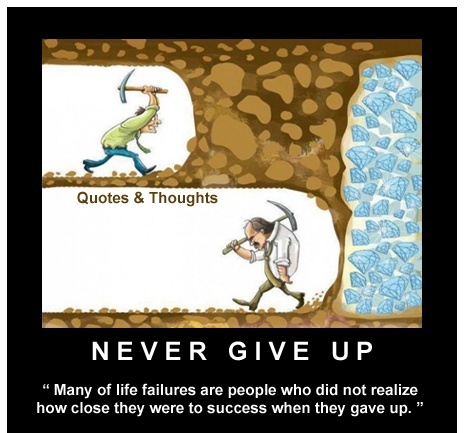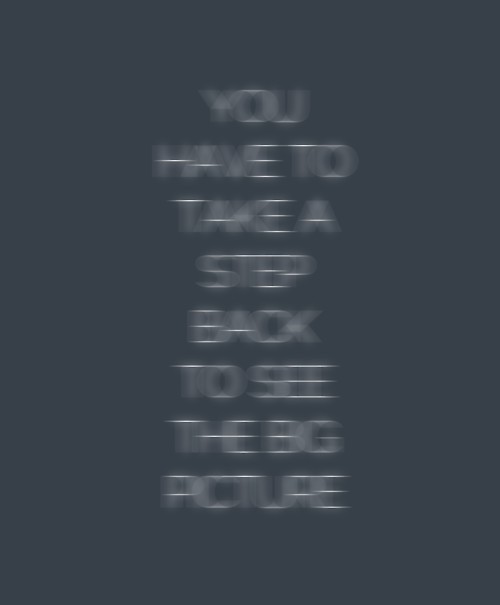
Never give up
“When nothing seems to help, I go look at a stonecutter hammering away at his rock, perhaps a hundred times without as much as a crack showing in it. Yet at the hundred and first blow it will split in two, and I know it was not that blow that did it, but all that had gone before.” – Jacob Riis “The Stonecutter’s Credo”.
What I love about “The Stonecutter’s Credo” is that it confronts two of the most important elements keeping us from staying motivated: instilling within us a sense of purpose to our lives as well as our most routine actions.
In today’s day and age establishing a sense of purpose to our lives is more challenging than in previous times. A close friend once suggested that the high levels of depression in contemporary society can be attributed to the fact that most of us have climbed the ladder of what Abraham Maslow termed the “hierarchy of needs”.
In generations prior, man’s purpose was the survival of himself and his/her family. Since most of our base desires are more easily met today, our purpose is no longer survival, but self actualization. At this realm, it becomes much more difficult to find purpose in our lives. Simply put, lack of purpose = lack of motivation.
While it is obvious that finding purpose in our lives is key (and will be discussed in greater detail next week), finding meaning in our daily actions is not readily apparent but is just as important.
Many people fear routine. Getting in our cars every day to work, studying every day in school or even more ephemeral activities like exercise can become monotonous. That is because doing the same action repeatedly can make us feel like we are stuck.
While we all need to shake things up from time to time, in most getting cases getting out of a rut does not s require a change in form, but a change in outlook.
Routine brings on inertia for the simple reason that we believe that each of our actions – when performed on a daily basis – provides little significance. Human nature dictates that the more we do things the less special they become. As the Riis quote so eloquently points out, though our routine actions are materially similar, “no two blows are the same”. Each action has a unique and significant component to our end goal no matter how similar each of those actions is.
Noted author Malcolm Gladwell often cites that it takes 10,000 hours to master one’s craft. Much of those hours are materially the same, but each of them has a unique role in the greater scheme (for example an hour of piano practice makes us that much better than the day before making today’s practice different from tomorrow’s practice because of what it gives us in the grand scheme). If we can find the greater purpose to our lives (and if we can’t, then we develop a purpose), and we can see our daily routine as a distinct but equally important link in that chain, then we are on our way to conquering two of the biggest elements impeding our sense of motivation: a lack of purpose to our lives and a lack uniqueness to each of our actions. The beauty is that much of this can be conquered simply by changing our outlook.

